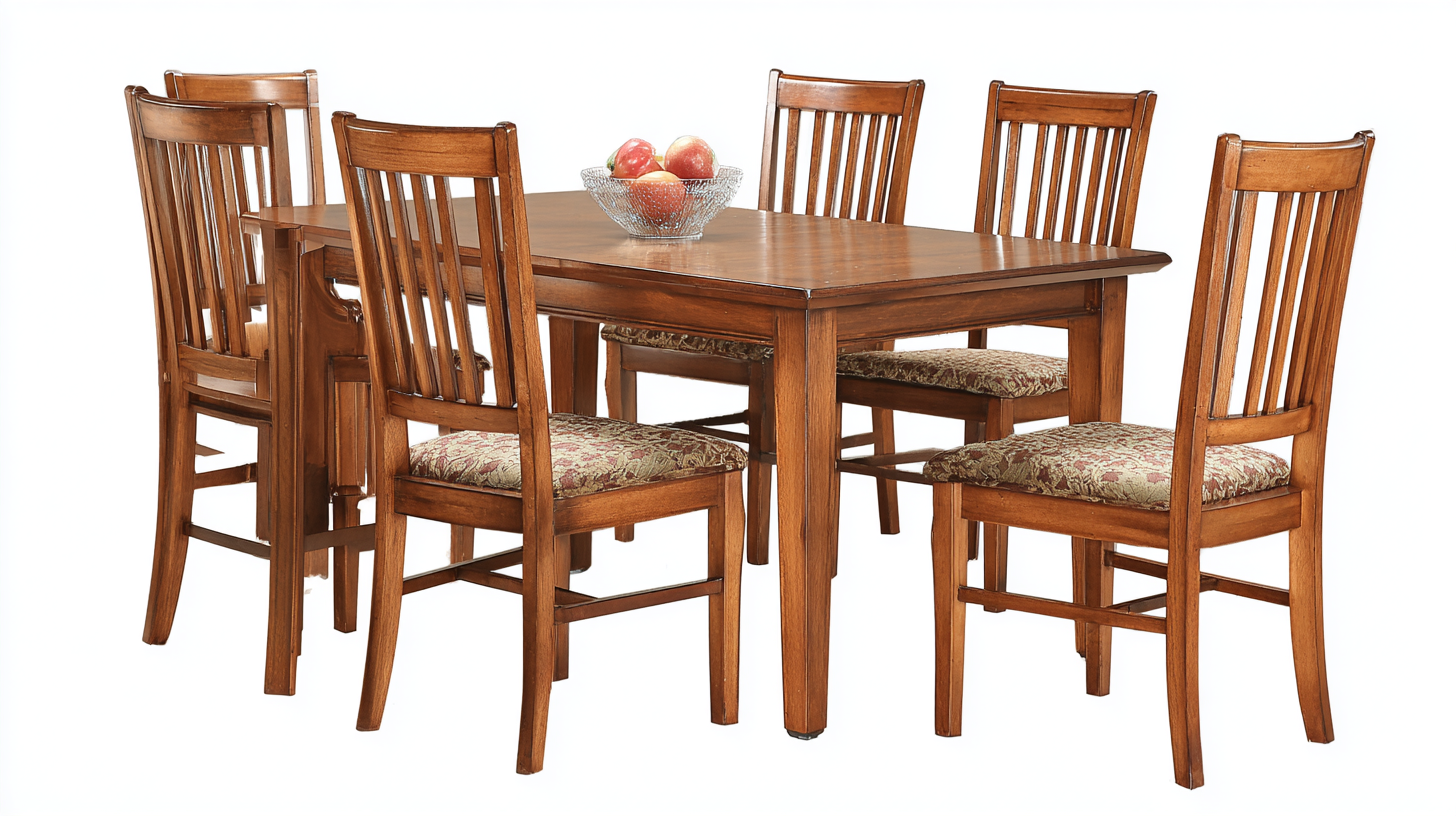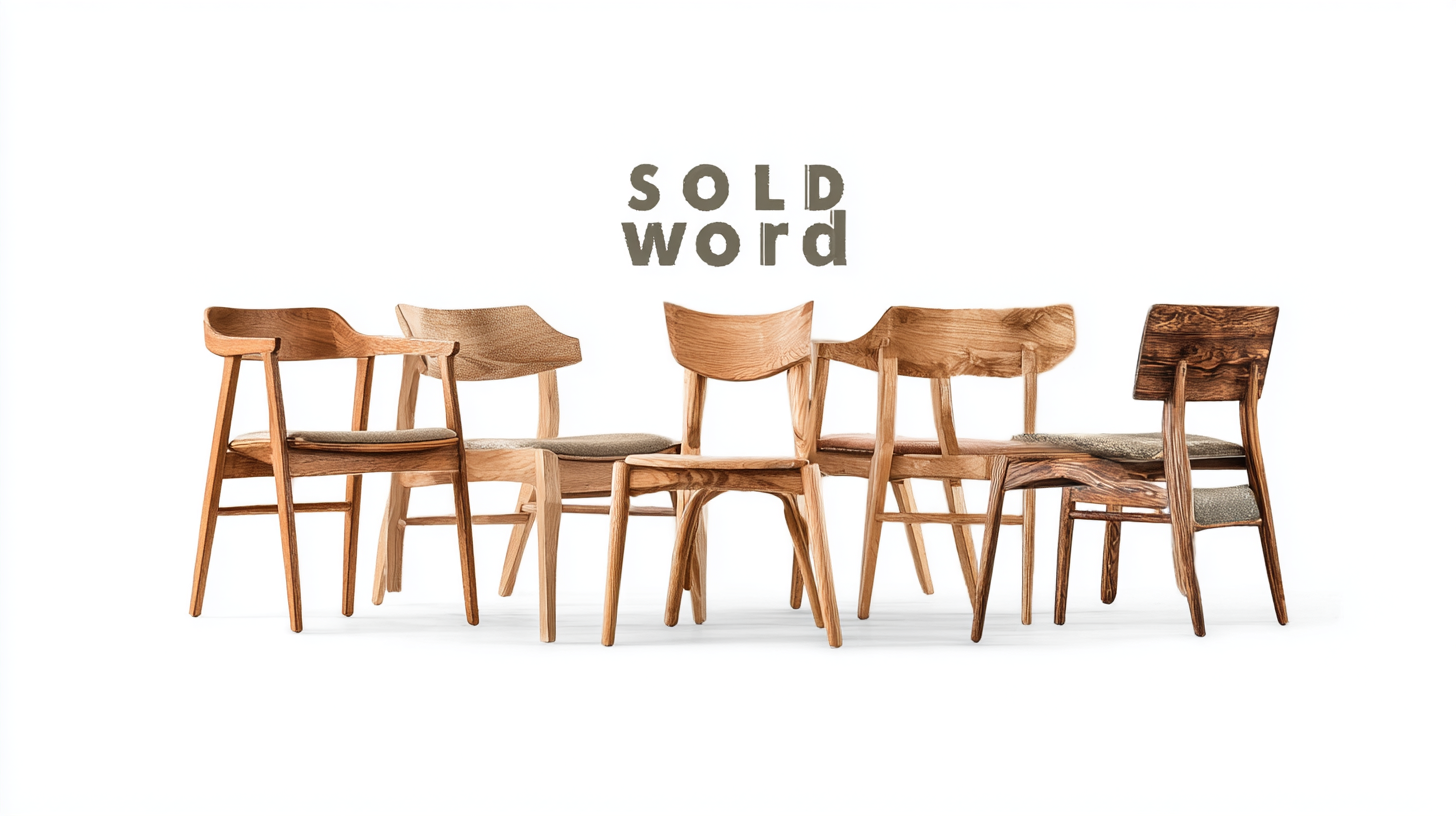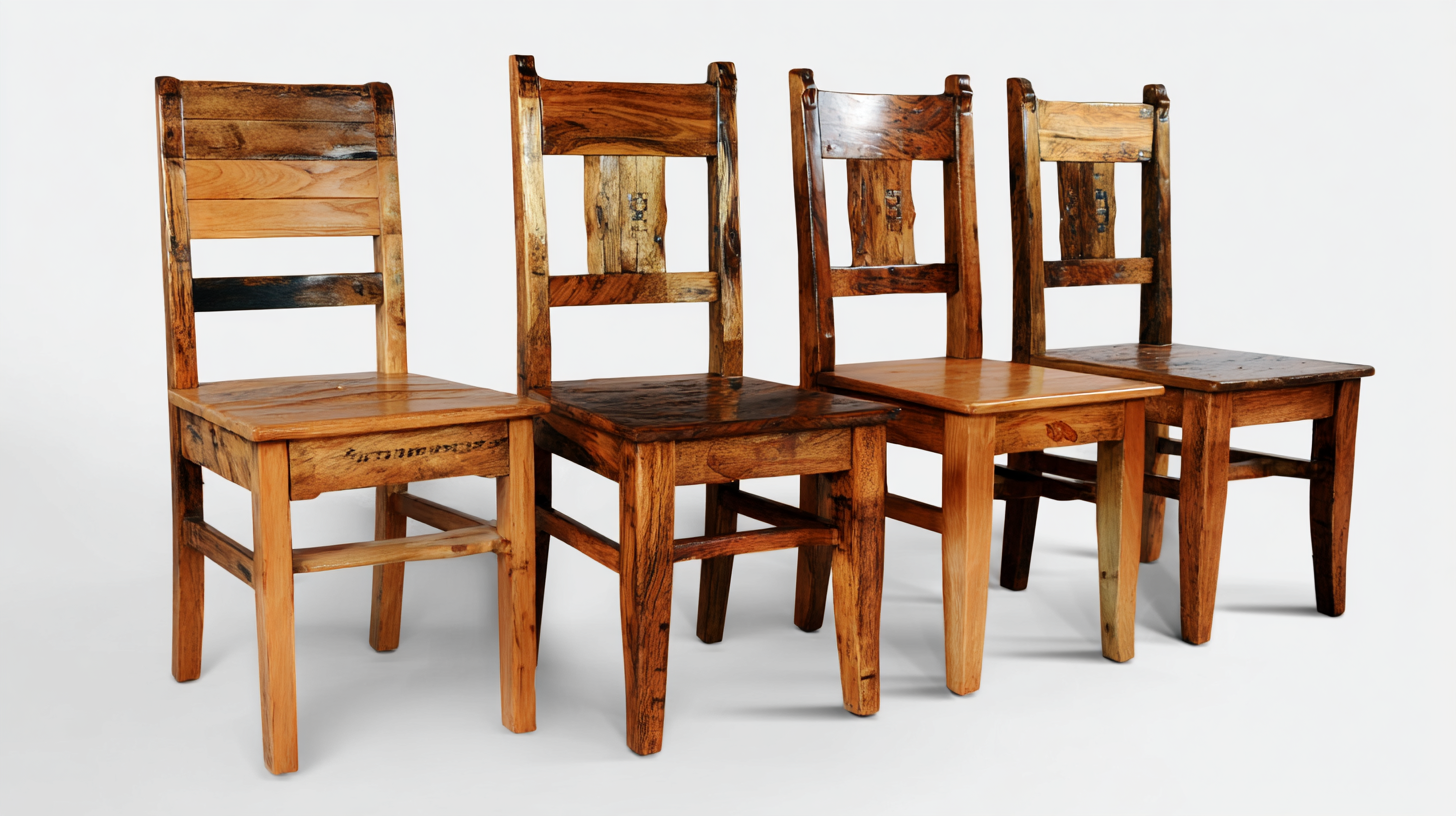
How to Navigate Import and Export Certifications for Best Solid Wood Dining Room Chairs
Navigating the intricate landscape of import and export certifications can seem daunting, especially when it comes to sourcing high-quality solid wood dining room chairs. As the demand for these classic, durable pieces continues to rise, understanding the regulatory requirements surrounding their trade becomes essential for both manufacturers and consumers alike.

This blog aims to simplify the process by offering a comprehensive guide to obtaining the necessary certifications, ensuring that your choice of solid wood dining room chairs meets international standards for quality and safety. By following these guidelines, you can confidently select products that not only enhance your living space but also comply with import and export regulations, paving the way for a smooth transaction and a satisfying dining experience.
Understanding Import and Export Certifications for Solid Wood Products
When considering the trade of solid wood dining room chairs, understanding import and export certifications is crucial for ensuring compliance with various regulations. These certifications serve as a quality assurance mechanism, verifying that the products meet specific standards related to safety, sustainability, and environmental impact. For businesses involved in international trade, familiarizing themselves with certifications such as the Forest Stewardship Council (FSC) and the Lacey Act can enhance their credibility and open up a wider market.
Moreover, navigating through the myriad of certifications can be complex, but it is essential for minimizing risks associated with non-compliance. Importers must ensure that their suppliers provide valid certifications that comply with local and international laws. This is particularly important for solid wood products, as concerns about illegal logging and deforestation are at an all-time high. By actively engaging with certification requirements, businesses can not only protect themselves from potential legal issues but also appeal to environmentally-conscious consumers who value sustainable practices.
Key Certifications Required for Dining Room Furniture Manufacturing
When manufacturing solid wood dining room chairs, understanding the key certifications required is essential for compliance and consumer trust. The Forest Stewardship Council (FSC) certification is a cornerstone in the industry, signifying that the wood used is sourced sustainably. This certification assures customers that the wood has been harvested in a manner that preserves ecological balance, promoting responsible forestry practices.
Another crucial certification to consider is the American National Standards Institute (ANSI) standards, which ensure that furniture meets safety and performance requirements. ANSI-certified dining room chairs are rigorously tested for stability, durability, and safety, making them a reliable choice for consumers.
Moreover, the Greenguard certification focuses on emissions, ensuring that the products are free from harmful chemicals and safe for indoor environments. Collectively, these certifications not only aid in navigating the complexities of import and export regulations but also enhance the brand’s reputation in a competitive market.

Navigating the Certification Application Process: Step-by-Step Guide
When navigating the certification application process for solid wood dining room chairs, it's essential to understand the required certifications such as the Forest Stewardship Council (FSC) and the American National Standards Institute (ANSI) standards. These certifications not only ensure compliance with environmental standards but also enhance marketability. According to the Wood Products Council, certified wood products can command price premiums of up to 20%, which reflects the growing consumer preference for sustainability.
Tip: Before applying for certifications, conduct a thorough assessment of your wood sourcing practices. Ensure that your suppliers are compliant with sustainable harvesting guidelines to streamline the certification process.
The certification application process can be intricate, often requiring extensive documentation and adherence to safety standards. For instance, the ANSI/BIFMA standards dictate rigorous testing for furniture durability, which is crucial for long-lasting products. Familiarize yourself with the specific requirements of each certification body to effectively navigate this process.
Tip: Create a checklist of necessary documents and tests required for each certification. This proactive approach can significantly reduce the time spent on applications and improve your chances of approval on the first attempt.
Import and Export Certifications for Solid Wood Dining Room Chairs
Common Challenges in Importing Solid Wood Chairs and How to Overcome Them
When importing solid wood dining room chairs, businesses often encounter numerous challenges that can hinder the success of their operations. One of the most significant obstacles is navigating the rigorous certification requirements. According to a report by the International Wood Products Association, around 60% of manufacturers face delays due to non-compliance with international import regulations. These regulations often vary by country, encompassing standards for sustainability, wood species, and manufacturing processes. To mitigate these issues, importers should invest in comprehensive training for their staff on compliance protocols and stay updated on changes in legislation through industry networks and resources.

Another common challenge stems from the sourcing of certified wood. A survey conducted by the Forest Stewardship Council indicated that 80% of manufacturers struggle to find suppliers that provide verified sustainable wood. This can result in increased production times and elevated costs. To address this, businesses can foster strong relationships with certified suppliers and consider certifications such as FSC or PEFC that assure consumers of responsible sourcing practices. By prioritizing transparency in the supply chain and choosing reliable partners, importers can navigate the complexities of certification while promoting environmental responsibility in the solid wood furniture market.
Maintaining Compliance: Best Practices for Exporting Solid Wood Furniture
When exporting solid wood dining room chairs, maintaining compliance with international regulations is crucial to ensure a smooth transaction and to uphold your brand's reputation. According to a report by the International Trade Administration, furniture exports from the U.S. are projected to reach $18 billion by 2025, highlighting the growing demand for quality wood products globally. However, failure to comply with certification requirements can lead to costly delays and fines, ultimately jeopardizing market access.
One best practice for exporting solid wood furniture involves understanding and adhering to the requirements set forth by the U.S. Department of Agriculture (USDA) and the Convention on International Trade in Endangered Species of Wild Fauna and Flora (CITES). For instance, utilizing compliant wood species and securing necessary phytosanitary certificates can mitigate risks associated with import refusals. A survey conducted by the Furniture Today indicated that over 60% of furniture companies reported challenges with regulatory compliance, underscoring the need for robust compliance strategies. Implementing a thorough documentation process and staying updated on changing laws not only protects your business but also aligns with global sustainability efforts, which have become increasingly important to consumers.
How to Navigate Import and Export Certifications for Best Solid Wood Dining Room Chairs - Maintaining Compliance: Best Practices for Exporting Solid Wood Furniture
| Certification Type | Issuing Authority | Requirements | Validity Period | Region Applicable |
|---|---|---|---|---|
| FSC Certification | Forest Stewardship Council | Sustainable forest management practices | Indefinite, subject to annual audits | Global |
| CE Marking | European Commission | Conformity with safety and health directives | Indefinite, requires ongoing compliance | European Union |
| CITES | Convention on International Trade in Endangered Species | Permits required for endangered wood species | Varies based on species | Global |
| CARB Compliance | California Air Resources Board | Limits on formaldehyde emissions | Indefinite, requires ongoing testing | United States |
| ISO 9001 | International Organization for Standardization | Quality management system requirements | 3 years, subject to recertification | Global |